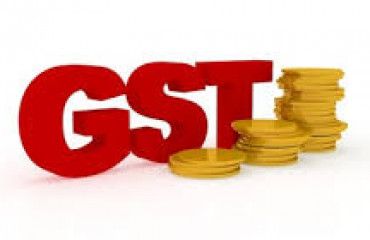
Trump-Putin meeting in Alaska concluded with a commitment to future talks, signalling progress in US-Russia relations amidst the ongoing Russia-Ukraine war
Trump-Putin meeting: The most-awaited three-on-three Trump-Putin meeting ended in Alaska on Friday with a hope that the next round of meetings will be held in Moscow soon. However, the US President Donald Trump didn't walk out of the meeting as he had vowed ahead of the meeting, which signals development in the bid for a ceasefire in the Russia-Ukraine war. Apart from this, Indian Prime Minister Narendra Modi's announcement of GST reforms from the Red Fort in his Independence Day speech may also work as a positive domestic trigger for the Indian stock market.
According to stock market experts, ice has been broken in the US-Russia bilateral relations as both global leaders (Vladimir Putin and Donald Trump) vowed to sit for another round of meetings. They said Donald Trump promised to leave the meeting if he didn't like Putin's approach. However, after the end of the Trump-Putin meeting, both leaders talked positively, which signals 'progress but no deal'. When it opens on Monday, they said the Trump-Putin meeting outcome is expected to be respected by the global markets, including Dalal Street. They also expected a positive response to the GST reforms that Narendra Modi announced in his 15th August speech on Friday. They predicted a positive opening on Dalal Street but doubt the Nifty 50 could break above the 24,800 hurdle.
Trump-Putin meeting impact on Dalal Street
Decoding the outcome of the Trump-Putin meeting, Avinash Gorakshkar, a SEBI-registered fundamental analyst, said, "The most-awaited Trump-Putin meeting has ended with progress without any deal. Both leaders agreed to meet for the next round of talks, which is a good sign in bringing an end to the Russia-Ukraine war. Ahead of the meeting, the US President had vowed to walk out of the meeting if he didn't like Russian President Vladimir Putin's line of approach. However, after the end of the Trump-Putin meeting, both leaders talked positively, which may be a positive trigger for the global markets, including the Indian stock market." However, Gorakshkar maintained that there was no development on Trump's tariffs, and the fear of US tariffs is still around.
GST reforms
Pointing towards the GST reforms announced by Narendra Modi in his Independence Day speech, Anuj Gupta, Director at Ya Wealth, said, "The Indian stock market has already discounted Trump's tariff, and any further negative could have happened if the Trump-Putin meeting had failed. However, in this 'progress with no deal' situation, the market is expected to remain unaffected by no big breakthrough on Trump's tariffs. However, a big domestic trigger is the GST reforms, which Prime Minister Narendra Modi announced in his Independence Day speech. This is expected to enable bulls to outshine bears on Monday, and we may see a positive opening when trading resumes on Dalal Street after a gap of three days."
Segments in focus
Advising investors to look at domestic consumption-driven segments, Dr VK Vijayakumar, Chief Investment Strategist at Geojit Investments Limited, said, "Domestic consumption-driven sectors like banking and finance, telecom, aviation, capital goods, hotels, FMCG, and cement will not be impacted by Trump's tariffs. But it is important that investors choose stocks that are fairly valued in these segments."
Why Trump's tariffs won't play
On why Trump's tariff may not be a significant factor in the near-term, Gaurav Goel, Founder & Director at Fynocrat Technologies, said, "One reason for the market's stability is the strong and steady support from domestic institutional investors. They have been putting large amounts of money into Indian equities, acting as a cushion against external shocks. In May, DIIs bought ₹67,642 crore worth of stocks, in June ₹72,673 crore, in July ₹60,939 crore, and in August ₹51,899 crore. With this level of consistent buying, the market is finding the strength to stay stable."
"Another factor is the strength and diversity of the Indian economy. Our growth does not rely on any single export market. Domestic consumption, services, manufacturing, and technology create a broad base that cannot be easily shaken by a single policy decision abroad. Even if the full set of proposed tariffs comes into effect, experts estimate the impact on India's GDP to be less than 0.2 per cent. This is a reminder of how small this challenge is in the context of our overall economy," Goel added.
However, market experts maintained that Monday's upside would be limited, and the Nifty 50 index may not be able to break the 24,800 hurdle.
"The Indian stock market may have a positive opening on Monday, but the rise will be limited and the Nifty 50 index may find it tough to break above the 24,800 hurdle," Avinash Gorakshkar said.
Disclaimer: This story is for educational purposes only. The views and recommendations above are those of individual analysts or broking companies, not Mint. We advise investors to check with certified experts before making any investment decisions.
